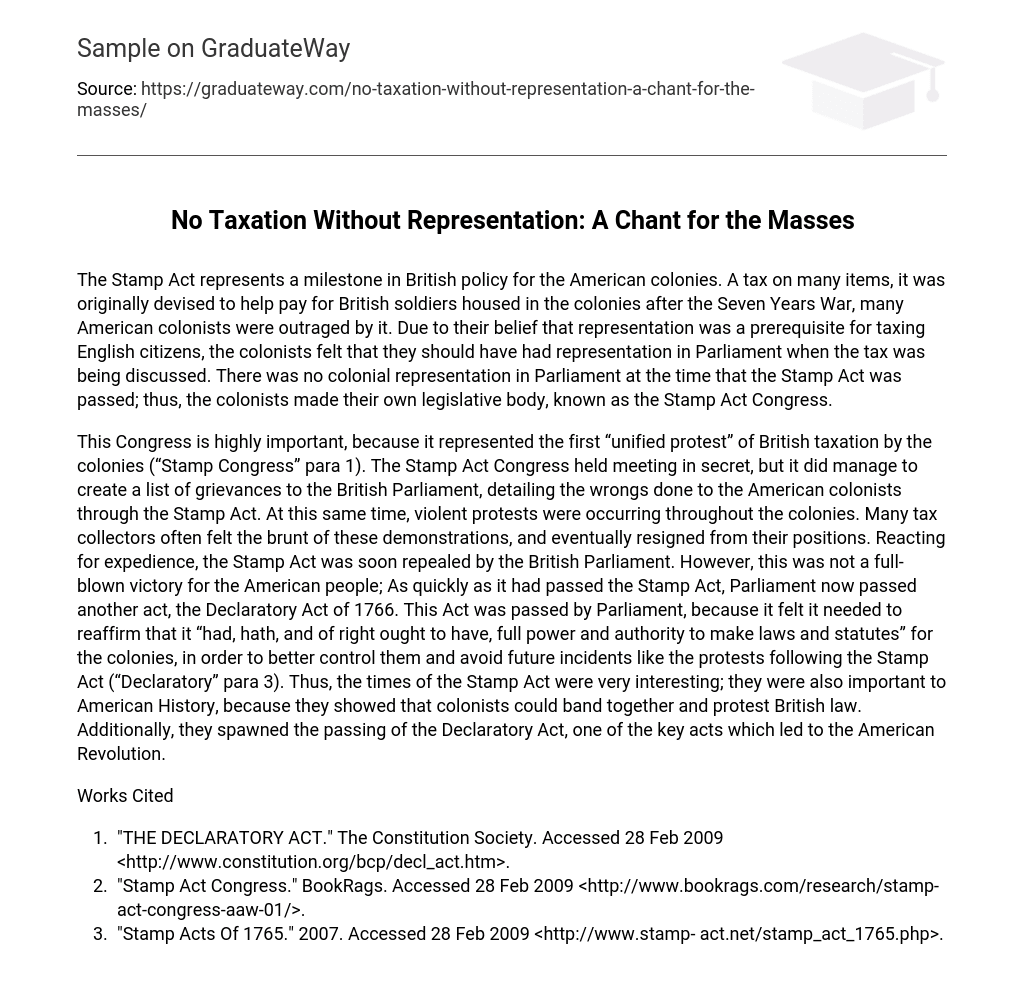The Stamp Act represents a milestone in British policy for the American colonies. A tax on many items, it was originally devised to help pay for British soldiers housed in the colonies after the Seven Years War, many American colonists were outraged by it. Due to their belief that representation was a prerequisite for taxing English citizens, the colonists felt that they should have had representation in Parliament when the tax was being discussed. There was no colonial representation in Parliament at the time that the Stamp Act was passed; thus, the colonists made their own legislative body, known as the Stamp Act Congress.
This Congress is highly important, because it represented the first “unified protest” of British taxation by the colonies (“Stamp Congress” para 1). The Stamp Act Congress held meeting in secret, but it did manage to create a list of grievances to the British Parliament, detailing the wrongs done to the American colonists through the Stamp Act. At this same time, violent protests were occurring throughout the colonies. Many tax collectors often felt the brunt of these demonstrations, and eventually resigned from their positions. Reacting for expedience, the Stamp Act was soon repealed by the British Parliament. However, this was not a full-blown victory for the American people; As quickly as it had passed the Stamp Act, Parliament now passed another act, the Declaratory Act of 1766. This Act was passed by Parliament, because it felt it needed to reaffirm that it “had, hath, and of right ought to have, full power and authority to make laws and statutes” for the colonies, in order to better control them and avoid future incidents like the protests following the Stamp Act (“Declaratory” para 3). Thus, the times of the Stamp Act were very interesting; they were also important to American History, because they showed that colonists could band together and protest British law. Additionally, they spawned the passing of the Declaratory Act, one of the key acts which led to the American Revolution.
Works Cited
- “THE DECLARATORY ACT.” The Constitution Society. Accessed 28 Feb 2009 <http://www.constitution.org/bcp/decl_act.htm>.
- “Stamp Act Congress.” BookRags. Accessed 28 Feb 2009 <http://www.bookrags.com/research/stamp-act-congress-aaw-01/>.
- “Stamp Acts Of 1765.” 2007. Accessed 28 Feb 2009 <http://www.stamp- act.net/stamp_act_1765.php>.





